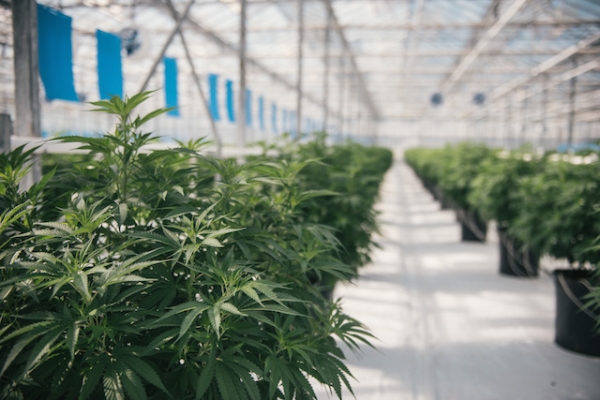You are here
Home 🌿 Recreational Marijuana News 🌿 Cannabis licence approval process means shortage could drag on 🌿Cannabis licence approval process means shortage could drag on

The current cannabis shortage could be stabilized by the spring of 2019, but it could eventually be replaced by a flood of product on the market that will then lead to lower prices and consolidation, say lawyers representing clients in the sector.
“It’s moving fairly quickly, and everyone is trying to get product to market, especially with the demand the way it is now and lack of supply. There is a real push for people to get through the application process and meet some of that demand,” says Michael Posnikoff, partner in the business law group at Norton Rose Fulbright LLP in Vancouver. “I’m dealing with about five clients that have applications in process.” There are about 130 licensed cannabis producers in Canada right now but there are more than 500 licences still in the queue waiting for Health Canada’s stamp of approval. Even when producers receive their licence to cultivate, typically, it’s still another year before they can sell any product.
“Most people I know in the industry were predicting shortages of supply for a couple of years after legalization given the pace at which Health Canada was issuing production licences,” says Posnikoff. “As some of those production licences currently in the application stage move through to issuance, we will see supply gradually catch up to the demand.”
Posnikoff’s first cannabis client came to him in 2013. Many have been in the medical cannabis market for some time and are now migrating to the recreational market, while others are in ancillary markets such as packaging or making fertilizers and other products for the sector.
“It’s also not likely this supply shortage will be immediately resolved with new licences,” says Posnikoff. “It will take some time to build that supply chain up. It will be a multi-year process until the market settles. At that point, we will enter a new phase where it becomes about efficiencies and keeping costs down and distinguishing between brands. Consolidation will also start to happen.”
Many cannabis producers are also trying to figure out how to operate at scale, says Matt Mauer, vice chairman of the cannabis law group and partner at Torkin Manes LLP in Toronto. “We hear stories of major crop losses, which also puts a dent in the supply chain.”
Even in the year leading up to legalization, producers who were licensed, such as Canopy Growth, were ramping up and expanding their facilities, but that takes time, too.
“If the major LPs had been able to build out faster and grow, that might have helped,” says Mauer. “And if they didn’t have crop losses, that might have helped. When you put those things together, it contributes to the fact we’re short [on supply]. On top of that, we have distribution issues and Canada Post has contributed to that as well.”
Mauer points out that Canada is not alone in dealing with supply issues after legalization. Other jurisdictions where cannabis has become legal have all experienced the same hurdles.
“If you look at Colorado and other places that have legalized, there was huge demand and shortages. This isn’t something unique to us,” he says.
Mauer says some reports indicate the shortage could drag into 2020, but then there could be a flood of product available, which will cause a domino effect for other implications in the business.
“If history is any indication, there is typically a shortage and then all of a sudden the other producers come online, and prices start dropping because there is an over-supply,” he says. “Oregon just had a price drop of about 50 per cent based on the fact there is so much product in the market. Therefore, if Canada currently has 130 LPs and there are 500 applicants waiting to get licences, at five times the people producing and bigger facilities for those already producing, clearly at some point there will be a tipping point and there will be too much.”
Posnikoff says as Health Canada’s regulations are “fairly restrictive” it will be an ongoing process for all involved to get the regulations right until the market matures.
“As a lawyer it makes it very interesting because it’s not just that the regulations were rolled out in October and that’s it. There will be changes for years until we get it right,” he says.
Mauer says big companies will also look to get bigger by making strategic acquisitions and medium-sized licensed producers will merge.
“There may also be some producers go out of business because it will be hard to compete. When you have 500 people trying to supply the same market, there is only so many ways to compete. If want to go international, that’s one thing. Some just aren’t going to make it for a number of reasons.”
420 Intel is Your Source for Marijuana News
420 Intel Canada is your leading news source for the Canadian cannabis industry. Get the latest updates on Canadian cannabis stocks and developments on how Canada continues to be a major player in the worldwide recreational and medical cannabis industry.
420 Intel Canada is the Canadian Industry news outlet that will keep you updated on how these Canadian developments in recreational and medical marijuana will impact the country and the world. Our commitment is to bring you the most important cannabis news stories from across Canada every day of the week.
Marijuana industry news is a constant endeavor with new developments each day. For marijuana news across the True North, 420 Intel Canada promises to bring you quality, Canadian, cannabis industry news.
You can get 420 Intel news delivered directly to your inbox by signing up for our daily marijuana news, ensuring you’re always kept up to date on the ever-changing cannabis industry. To stay even better informed about marijuana legalization news follow us on Twitter, Facebook and LinkedIn.




